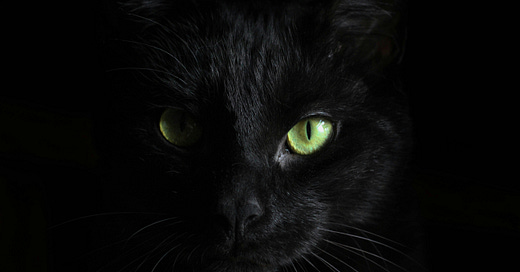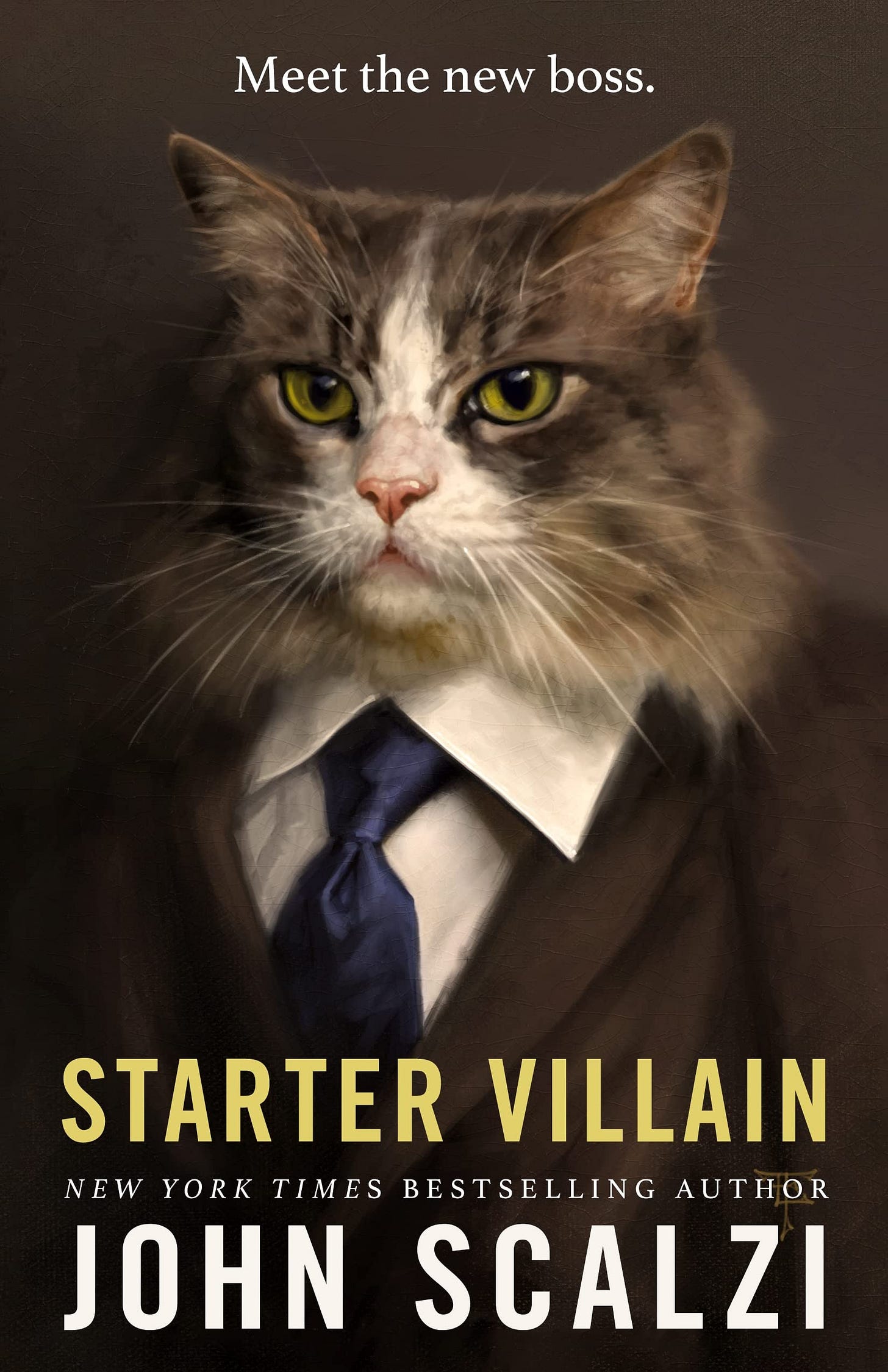Starter Villain is not my typical book, but for some reason the cover sucked me in. I don’t typically care for portraits of animals in clothes, but I guess I was looking for something different. A lighthearted novel, it follows Charlie, a teacher who inherits his uncle’s *literal* supervillain business. It’s like Despicable Me but with cats and dolphins instead of minions.
The story’s supervillains “altered” their animal minions, giving them the ability to understand and communicate with humans. As much as I love talking animals, I’m always a little wary of how they’re written. (I start wondering if the author will, or even could, offer a scientific explanation. Not that I’d understand it. But still, I’d appreciate the effort.) It worked for me this time because the characters are all villains. It makes sense for them to use animals for malicious purposes. It was the author, however, who disappointed me.
After the cats’ ability to speak is revealed, everyone starts calling them “sentient,” as if it’s some major revelation. I felt like a cartoon character when I first read the word, shaking my head and doing a double-take to make sure the surprising thing I saw was really there.
Sentient? I thought. But cats are already sentient. That thought kept repeating throughout the novel each time the word was misused. Stop saying that! CATS ARE ALREADY SENTIENT, OHMYGOD WHAT ARE YOU TALKING ABOUT?!
I was a little frustrated.
Now, I don’t know exactly how many people read Scalzi’s manuscript before publication, but there had to be a fair few. His agent, editors, proofreaders, ARC readers, plus maybe some writer friends along the way. How did not a single person catch this? Where were his editors?
I shoudn’t have been so surprised. On the rare occasions I hear people outside the vegan sphere use the word, it’s nearly always conflated with consciousness, self-awareness, or the ability to talk. People don’t really know what it means, which is why I generally avoid the word. That doesn’t mean we should eliminate it from the vegan vernacular, but our animal advocacy will be more impactful if we first clarify what it means for our audience. (For reference, I consider sentience to be the ability to feel. It takes about two seconds to google the definition, but I digress.)
There were good moments in the book, too. I particularly liked the dolphin characters. Absurdly foul-mouthed, they take every possible chance to insult humans. Here’s the introduction Charlie gets from one of them:
“‘Hi, Charlie,’ the dolphin said. ‘I’m Who Gives a Shit, and these are my associates Don’t Care, Fuck You, Fuck Off, Burn It Down, and Eat the Rich.’”
The dolphins don’t act like this without reason. They’re trying to unionize and are threatening to go on strike, calling the cats “class traitors” for working in management while the dolphins are used as “slaves.” When the human characters are introducing Charlie to the world of villainy, they address the nuance of “intelligence” and how humans treat captive animals:
Overall, aside from the whole sentience debacle, I think the book does a fairly good job of exploring the ethics of using animals while keeping the story fun and upbeat.
On my mind: Reptile (2023)
Yes, I watched this movie solely because of the title, but much to my disappointment, it had nothing to do with reptiles. I don’t think the word was ever even said. Though there are plot holes galore, the slow, meditative vibe worked for me as I watched Detective Nichols hunt down a killer. But perhaps of interest to you, dear reader, is that the detective’s wife, coincidentally (or not?) played by vegan actress Alicia Silverstone, bakes a vegan birthday cake in the film. “No animals were harmed making this cake,” proclaims the birthday boy. This has nothing to do with the plot, but I appreciated it nonetheless.






